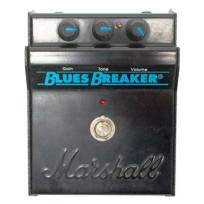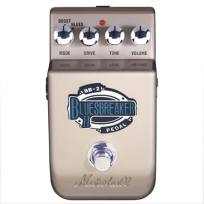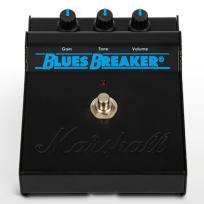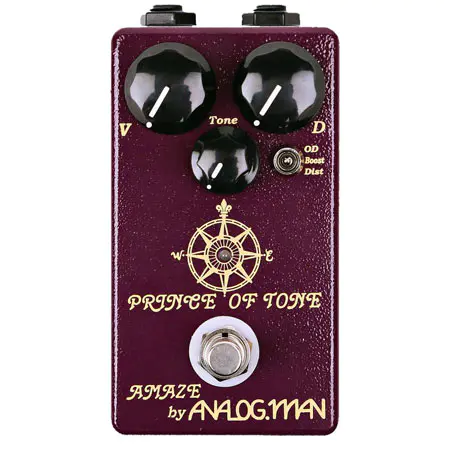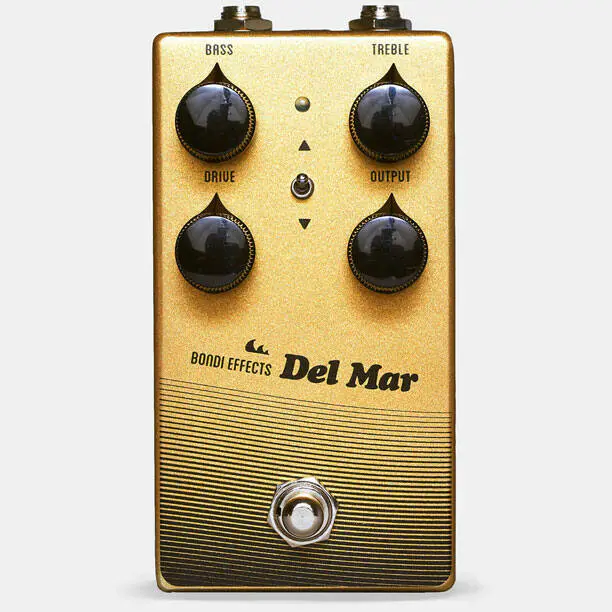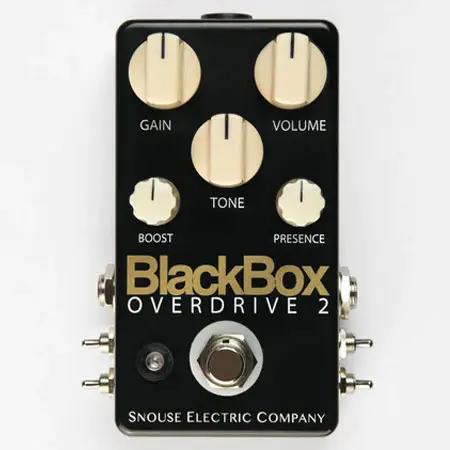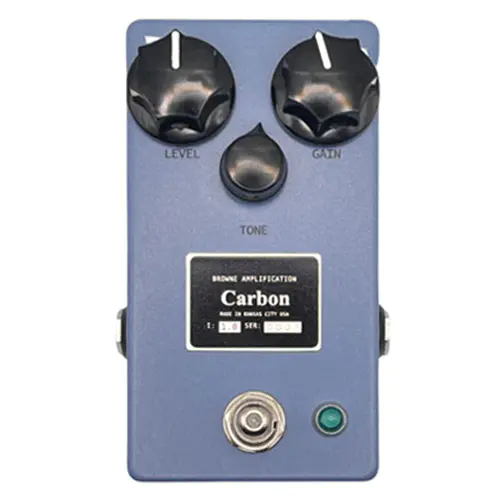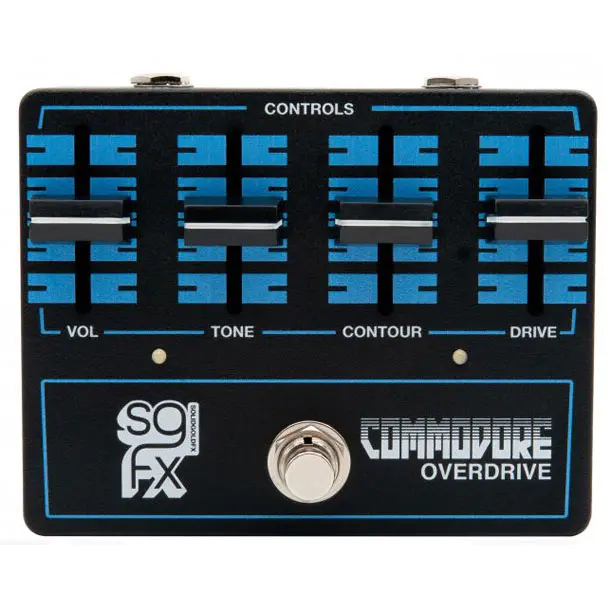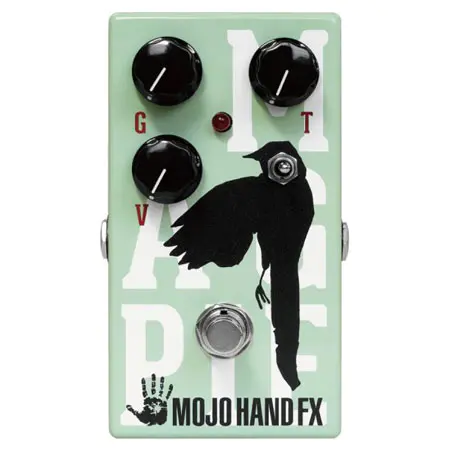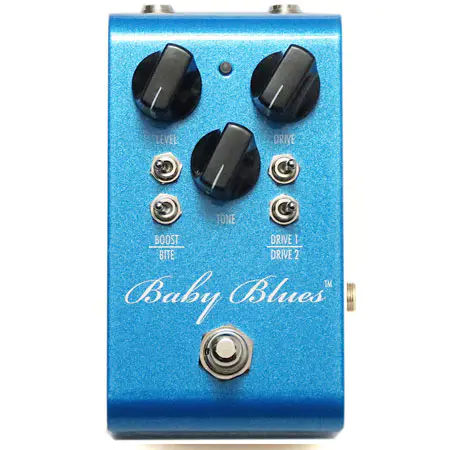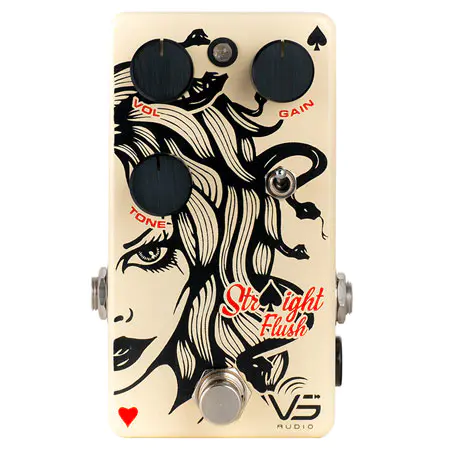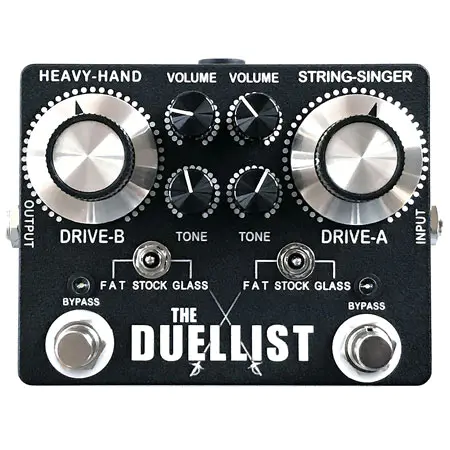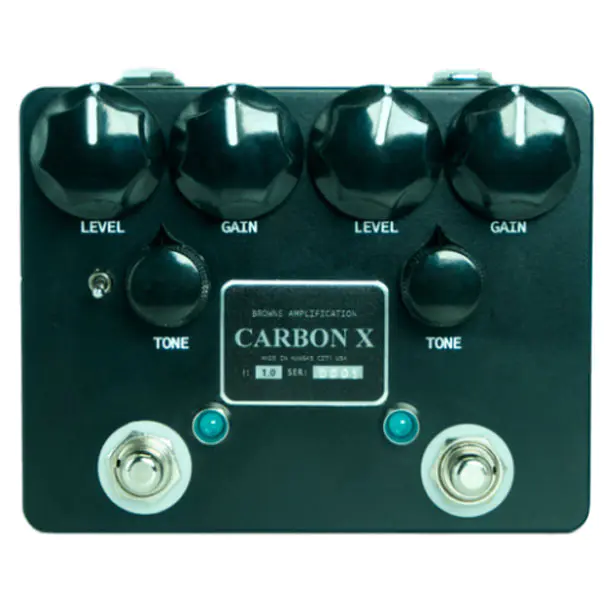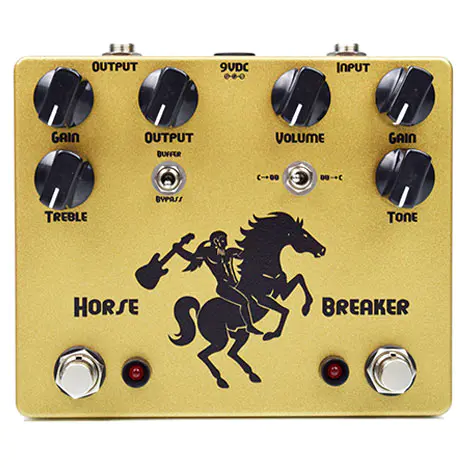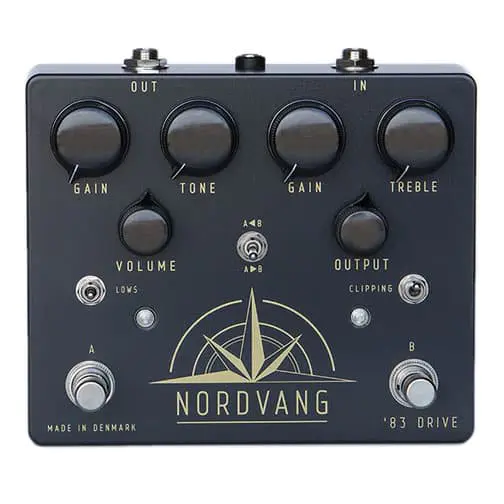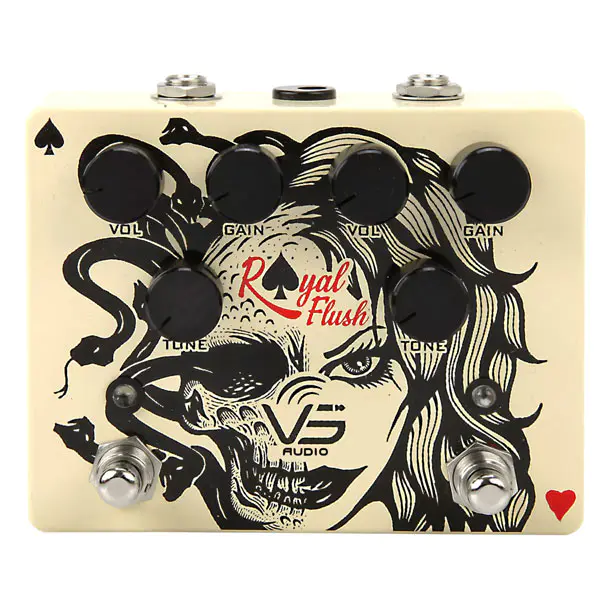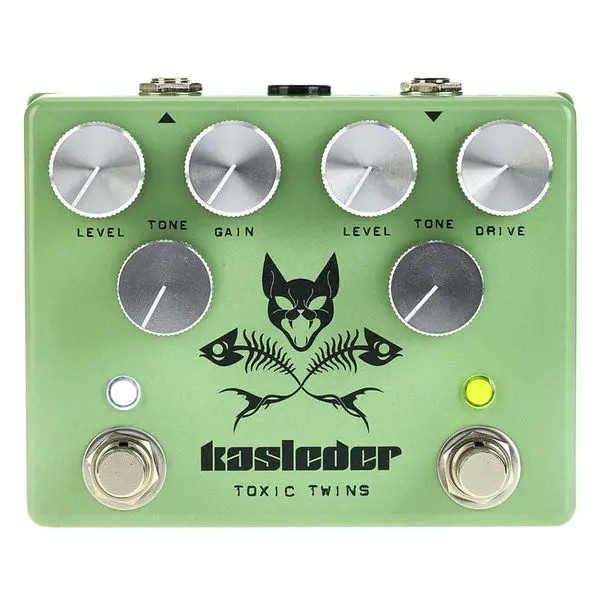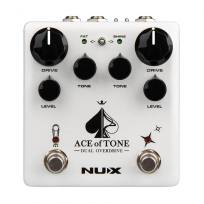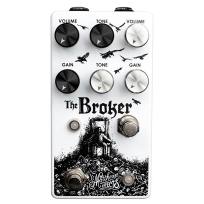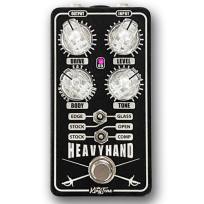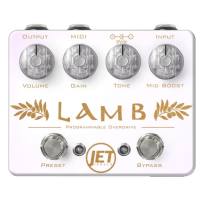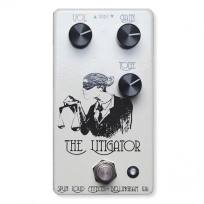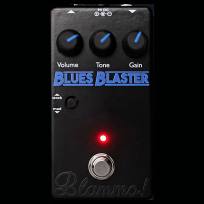
A Brief History of the Blues Breaker
The original Marshall Blues Breaker pedal was an overdrive released in 1991, but the history of that name dates back to 30 years earlier: Marshall took the name from John Mayall and Eric Clapton’s 1960s band, the Bluesbreakers.
Clapton’s guitar tone on their self-titled album is the stuff of legend, created from just a Les Paul plugged into a Marshall 2×12 JTM combo. The amp, which itself was based on a Fender Bassman circuit, became known as “the Bluesbreaker” after the album.
So the amp, the band, the album, and the pedal are all called Bluesbreaker – although the correct spelling of the pedal and the amp features a space between the two words – like in this image:
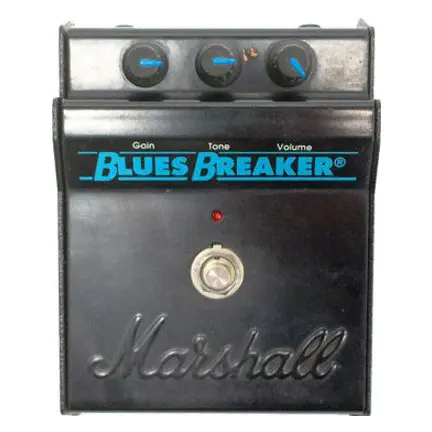
A vintage Marshall Blues Breaker Pedal (1992), it can be found used on Reverb for $500 or more. Click image for a demo.
How Does a Blues Breaker Sound?
Click here to read this section
To this day, Marshall has released three versions of this pedal, although the third one is an identical, yet slightly improved, reissue of the first one, and the second one wasn’t very successful. Here’s an interactive gallery of these three releases – click or double-tap for a video demo. — While the Blues Breaker proved to be a very influential pedal, there were shortcomings that many players and builders wanted to address. The pedals on this list are not straight-up clones, they all add or modify the original Blues Breaker circuit topology in some way, whether it be adding more output volume, more gain, changing the EQ, adding different clipping options, and more. Here are three lists of the best Blues Breaker-style pedals you can buy right now, in our opinion. In the early 2000s, the King of Tone set the standard for modern Blues Breaker pedals. But If you’d rather not wait 3 years or pay upwards of 800 dollars for one, the Prince of Tone is a fantastic affordable option that is simply one-half of a KOT. Yes, it is made overseas, but the circuit is the same as its bigger brother. If you want a King of Tone with even more flexibility, just get two of these! $169 | Click title for video. Buy it on: Sweetwater | Thomann | Amazon | Reverb. The pedal that put JHS on the map, the Morning Glory has become more famous than the original Blues Breaker, maybe more famous than even the King of Tone. And it does sound really good! Josh Scott popularized the idea of adding a JFET output gain stage to the Blues Breaker circuit to bump up the volume available. The V4 Morning Glory includes extra features such as a higher gain stage and a bright cut switch. This is a refined modern mid-gain overdrive that is hard to get a bad sound out of, conceived as a combination of the best elements of a Blues Breaker, a Klon and a Tube Screamer. The two gain voicings can be switched via a central toggle, with the lower position delivering tones often associated with the Blues Breaker, and the top one offering the clean section of the Klon with a TS-style clipping stage, with all its articulate and detailed response. MkII improves the power supply and decreases the noise floor further, also introducing a new quiet true-bypass switching. A hand-wired Blues Breaker with lots of customizable features. Demand for the Black Box went through the roof over the pandemic, and now there is a 2 year wait list. But this is a great sounding, meticulously crafted pedal, with boost and presence controls, and the options of external voicing switches. $299 | Click title for video. Buy it at Sweetwater or Reverb. The Halcyon pedal line employs a proprietary system called Adaptive Circuitry that automatically tweaks the effect’s voicing in real-time in response to pick attack and volume changes, improving dynamics and tone consistency. The Blue version is based on the Marshall Blues Breaker. The adaptive system can be bypassed for a more authentic/vintage tone, or used in “Mode I” which makes it more subtle, compared to the “full-on” Mode II. A Voice toggle switch lets you add more bass and gain when in Mod position. $169 | Click title for video. Buy it on: Sweetwater | Thomann | Amazon | Reverb. As is evident in the name, Wampler is taking influence not just from the Blues Breaker, but from the equally famous pedals that have followed in its path. The Pantheon has high and low gain stages, three clipping voices, and a two-band baxandall EQ and presence control for precise and versatile tonal shaping. A high-end Bluesbreaker-inspired stompbox designed to provide the player with a wide array of tonal options with just three knobs. One characteristic of this pedal is that your tone will sound brighter the higher you have the gain set, due in part to the circuit’s massive output potential which allows it to be used also as a clean boost at lower gain settings. A Tone knob lets you fine-tune the low/high-frequency balance to complement your pickup/amp combo. $199 | Click title for video. Buy it on: Sweetwater | Thomann | Amazon | Reverb. JRAD reliably churns out quality pedals in the most compact and sturdy builds on the market. This simple take on the Blues Breaker features a Fat control in addition to the standard Gain, Tone, and Volume, which tailors the low-end trim, useful for different pickup and amp combinations. The Hot toggle switch adds extra gain and mid-range. ~$175 | Click title for video. Buy it on Reverb. A mini-pedal hand-made by a reputable Barcelona-based one-man operation, the Rivus employs a combination of thru-hole, New Old Stock components, and a low-noise custom-designed PCB board to deliver the transparent yet warm, smooth, and dynamically driven tones of the original circuit it takes inspiration from. To the classic Gain, Level, and Tone controls the Rivus adds a 3-way Clip switch to shape the overdrive’s character; a Mode switch that lets you choose between the two versions of the MK1 circuit (Pre and Post 1995); and an Internal Higher Gain switch that lets you set different levels of overdrive intensity. The Bypass Footswitch features boot memory and momentary mode to sweeten the deal further. $239 | Click title for video. Buy it on: Sweetwater | Thomann | Amazon | Reverb. Designed in collaboration with Joey Landreth, the Golden Boy is an end-all BB-style pedal. Three-band EQ, cycle-able gain stages, four clipping diode voicings, internal presence and tone controls, and a footswitchable MOSFET boost make this the most versatile Blues Breaker on the market. $129 | Click title for video. Buy it on: Sweetwater | Thomann | Reverb. A refined yet affordable rendition of the Blues Breaker, of which it delivers the renowned smooth breakup, with all the clarity and dynamics you get from a driven tube amp. The 3-way LIFT switch intensifies the drive’s impact generating a compressed, saturated tone while preserving its dynamic and transparent quality, while the pedal’s EQ includes a TREBLE knob for managing high frequencies and an active BASS knob to adjust bass tones—useful for adding body to single coil guitars or refining the low end for warmer humbucker guitars. Additionally, the Spruce Goose offers mechanical relay true bypass switching with both latching and momentary actions. Featuring sliders instead of knobs, this is a specially tuned, low to mid-gain BB style drive circuit feeding a very flexible yet unusual sculpting section consisting of a Tone and a Contour sliders, which allow for a variety of tones ranging from black panel spank to Vox-ey chime and British growl. It works with up to 18v for extra headroom. Another well-liked pedal that takes inspiration from the King of Tone, the Magpie is a touch-sensitive transparent drive with a three-way clipping option. Up is crunch, middle is boost, and down is overdrive, for a wide range of gain options. Veteran pedal makers Rockbox have a predictably strong take on the Blues Breaker, with standard controls as well as four toggle switches to change EQ boosts and drive modes, all in a compact enclosure with top jacks. A Greek company to watch out for, VS Audio makes high-quality pedals inspired by classic designs with modern ease of use. Their Straight Flush is a Prince of Tone-style transparent overdrive with a toggle-able extra gain stage. — — The “transparent” nature of the Blues Breaker, along with the fact that some guitar heroes like John Mayer love to stack their transparent drives with other flavors, make the Blues Breaker an ideal candidate for one half (or both halves) of a dual-channel overdrive. Here are the best ones on the market. Mike Piera of Analogman was the first pedal builder to take the Marshall Blues Breaker circuit and rebuild it from the ground up to his liking. As a result the King of Tone was born, a dual overdrive with 3 different clipping options on each side: Overdrive, Clean Boost, and Distortion. The King of Tone is arguably the most sought-after pedal on earth, with a waitlist over 3 years long at the time of writing this. A higher gain option than most pedals on this list, the Duellist is a tone-tweaker’s delight. The “Heavy Hand” side is a highly refined Blues Breaker while the “String Singer” is a modern Tube Screamer. Each channel features “Fat/Stock/Glass” voicing switches for a variety of tonal options. A switch on the side panel lets you change the order of the channels, while using TRS cables you can create an FX loop in between the two drives. A DIP switch panel on the side of the case allows for six extra tweaks of the the channels’ voicing. A dual-channel overdrive that gives you the same gooodness of the Carbon (featured in the single channel list above), times two. The two circuits have separate footswitches and are stacked on top of each other when both are on. They have a slightly different voicing, with the right side sounding more open and raw than the left one, which is a little more controlled and compressed. The left channel (last in the chain) has a 3-way hi-cut switch (with a flat option in the middle), which comes in particularly handy when the two circuits are feeding each other. Other features include soft-switching, adjustable startup state, and internal switch for use with a looper. $293 | Click title for video. Buy it on: Sweetwater | Thomann | Amazon | Reverb. Josh Scott combines his Morning Glory (Bluesbreaker) and Moonshine (Tube Screamer) into one compact enclosure, with order switching and all of the features of the individual pedals intact. The TS side comes with a clean blend for more “transparency.” On one side, a Blues Breaker, on the other, a Klon. Two of the most famous overdrive circuits of all time come together in this highly effective dual overdrive, with order switching and buffer or true bypass options on the Klon side. These are not deviations; they are the original circuits down to a T, with all their charms and quirks. $267 | Click title for video. Buy it on: Sweetwater | Thomann | Amazon | Reverb. It doubles down on the original, including stereo and MIDI I/O and some other useful features. Each channel sports the same controls as the single version (4 knobs and two 3-way switches for various gain and voicing options) but the Presence knob is shared by the two and at the end of the chain. The second channel has a slightly different voice, and the order of the channels can be configured via a toggle switch. The same winning Klon and Blues Breaker combo, but pushed to extreme levels of build quality. The BB side features a 3-way Lows toggle for bass response options, and the Klon side features a 2-way diode clipping toggle. TRS split mode rounds out this boutique dual overdrive. The bigger brother of the Straight Flush, the Royal Flush takes its inspiration from the King of Tone. The low and mid-gain channels are put into a dual channel enclosure and can be stomped on individually or stacked for a third gain stage. The bigger brother of the Straight Flush, the Royal Flush takes its inspiration from the King of Tone. The low and mid-gain channels are put into a dual-channel enclosure and can be stomped on individually or stacked for a third gain stage. — There are a lot of pedals out there inspired by the Marshall Blues Breaker. The ones in this interactive gallery are other recently released ones that offer an interesting take. — We have similar guides for other popular overdrive circuits like the Klon, the Tube Screamer and D-Style pedals, and an overall article about the best distortion pedals organized by type. What Is a Blues Breaker? by JHS PedalsThe Originals: Marshall Blues Breaker / Bluesbreaker Pedals
Best Blues Breaker-Style Pedals
Best Single Channel Blues Breaker Clones
1. Analogman Prince of Tone
2. JHS Morning Glory V4
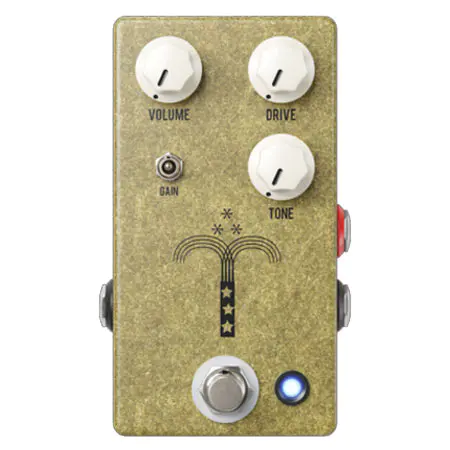
3. Bondi Effects Del Mar mkii
4. Snouse Black Box 2
5. Origin Effects Halcyon Blue
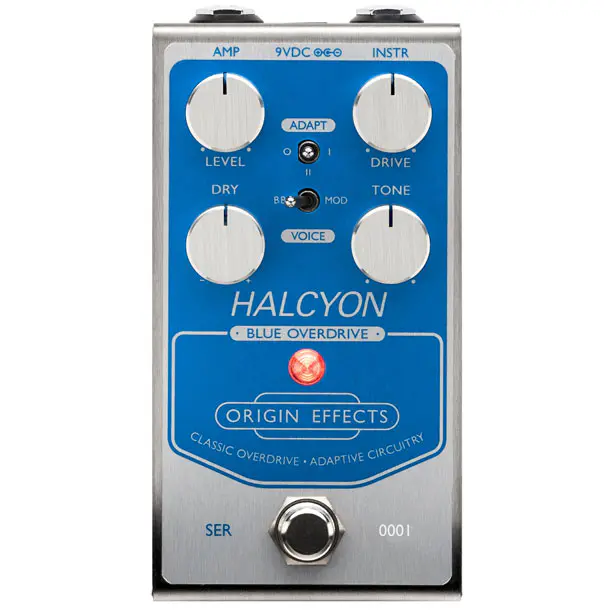
6. Wampler Pantheon
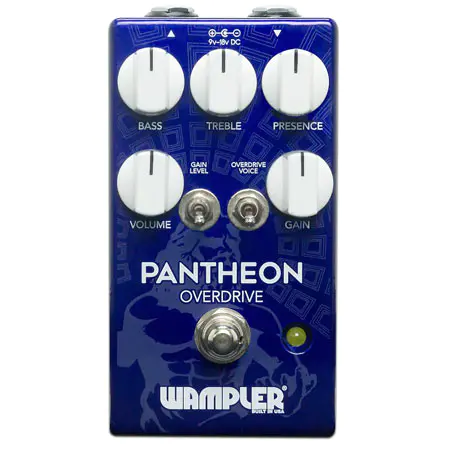
7. Browne Amplification Carbon V2
8. J. Rockett Blue Note Overdrive
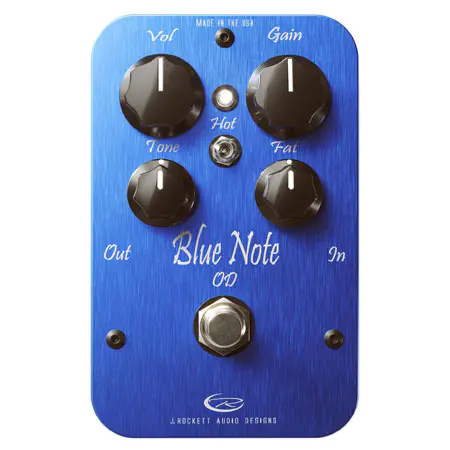
9. Decibelics Rivus
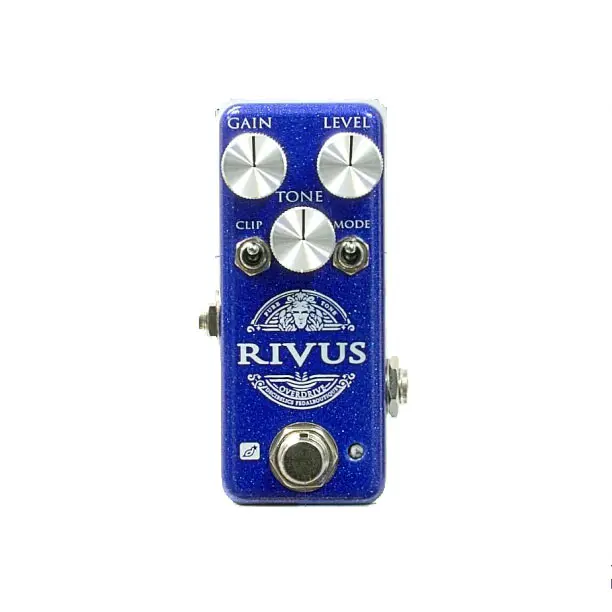
10. Jackson Audio Golden Boy
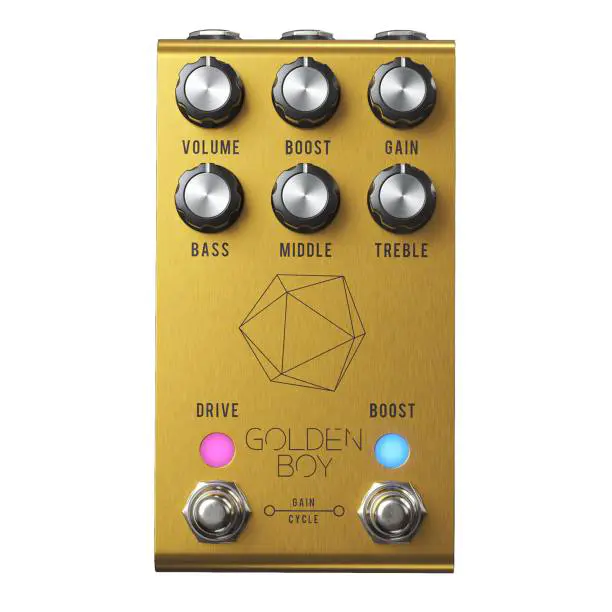
11. Electro-Harmonix Spruce Goose
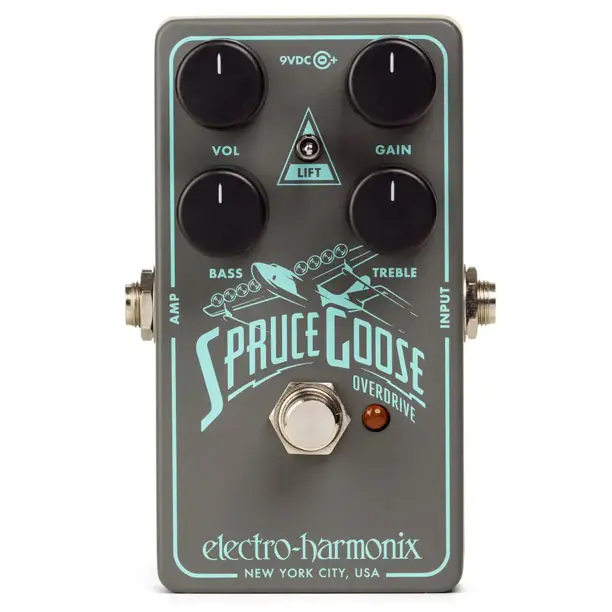
12. SolidGoldFX Commodore
13. Mojo Hand FX Magpie
14. Rockbox Baby Blues
15. VS Audio Straight Flush
Best Dual-Channel Blues Breaker Clones
• Analogman King of Tone
• KingTone Duellist V2
• Browne Protein
• JHS Double Barrel V4

• Ceriatone Horse Breaker
• Wampler Dual Pantheon

• Nordvang ’83 Drive
• VS Audio Royal Flush
• Kasleder Toxic Twins
Other Recent Blues Breaker-Inspired Pedals
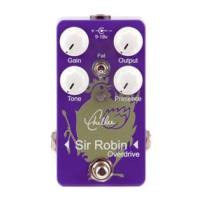
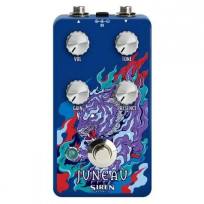
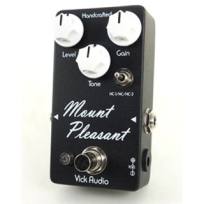
Relevant Videos about the Marshall Blues Breaker















